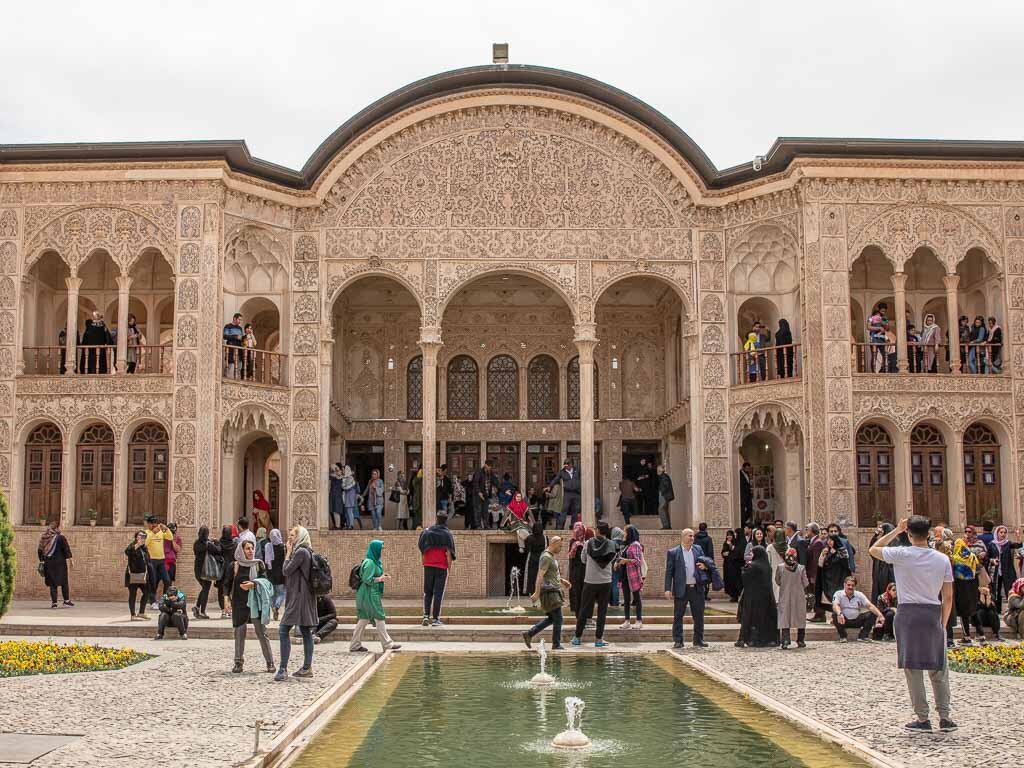Kashan is hub of cultural and touristic wealth, governor says

TEHRAN – On Monday, Kashan Governor Mohammad-Sharif Zarei highlighted the ancient city’s unique potential in the cultural, social, economic, and tourism domains.
Zarei elaborated on Kashan's numerous tangible and intangible historical assets, including over 2,000 historical sites comprising ancient houses, some 100 water reservoirs, some 100 historical mosques, seventy shrines and historical pilgrimage sites, thirty historical bathhouses, and a ten-hectare complex of historical bazaars, among others.
He made the remarks at a coordination committee meeting for travel services in Isfahan province where he underscored Kashan's historical significance, citing its earliest human settlement dating back seven millennia.
The official said Kashan's allure have sustained its appeal to cultural enthusiasts and tourists throughout different historical periods.
Acknowledging the recent progress made, Zarei noted that Kashan has held four executive sessions dedicated to the provision of travel services within the city.
“Notably, Kashan received recognition as a global hub for traditional textile manufacturing by the World Crafts Council this year, a testament to its longstanding heritage in traditional weaving workshops such as silk weaving, zari-bafi (gold thread weaving), and kilim-bafi (weaving rugs).”
The governor highlighted the accommodation facilities in Kashan, revealing that the city boasts eight hotels, forty-six traditional guesthouses, eighteen eco-lodges (including three apartment hotels), four guesthouses, three exemplary tourist complexes, and twenty-three travel and tourism agencies.
Talking about Kashan's national and global recognitions, the governor highlighted 343 nationally registered historical buildings, 40 intangible cultural heritage sites, and five UNESCO World Heritage sites, such as the Fin Garden, traditional carpet weaving skills specific to Kashan, and the caravanserai of Ghabrabad.
Furthermore, Zarei emphasized Kashan's unique position among Iran's traditional cities, boasting a historical area spanning 540 hectares, which fosters a dynamic economic environment within the region.
Many travelers opt to bypass Kashan on their journeys between Tehran, Isfahan, and Yazd, but this delightful oasis city on the edge of the Dasht-e Kavir is one of Iran’s most alluring destinations. The city not only boasts a cluster of architectural wonders and a UNESCO-recognized garden, but it also offers some of central Iran’s best traditional hotels.
During the Seljuk period (1051–1220) Kashan became famous for its textiles, pottery and tiles, reaching high levels of accomplishment in each of these cottage industries. Today, it is more widely known as a major center for the production of rose water, which is sold at outlets around the main tourist attractions and dedicated stores in the bazaar.
AFM
Leave a Comment